Louisa interviewed Terri and Michael of Fierce Fitness Dance Studio who are both vegetarian athletes.
Happy New Year!
(1) Wow! I’ve just watched your videos on YouTube, you really are extremely talented. How long have you been pole dancing?
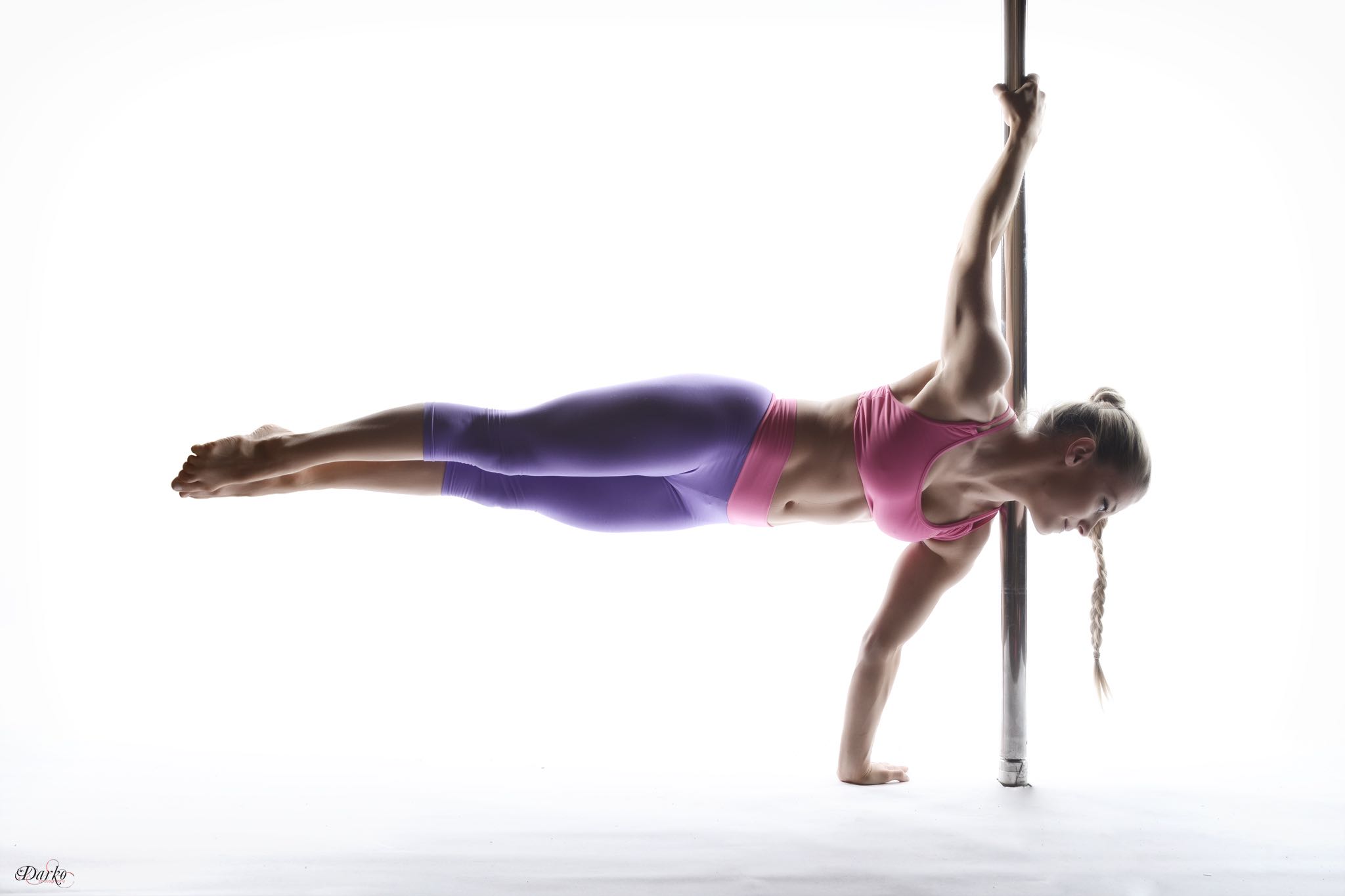
Terri: Thank you so much! I have been Pole Dancing for 7 years and Michael for 2.5 years.
(2) Were you always dancers or athletes? How did you become attracted to pole dancing?
Terri: I was never a ‘real’ dancer or athlete, though I did dabble in different dance styles because I always loved to try new things – but nothing ever stuck before Pole! I had wanted to try out something with a mix of gymnastics and dance and Pole seemed the perfect sport. I joined a class when I was 21 and fell in love with it!
Michael: I was previously a Breakdancer and always had a keen interest in Acrobatics. I became interested in Pole when I saw Terri dance in a music video we worked on together.
(3) I believe you’ve won awards for your dancing, can you tell us about it?
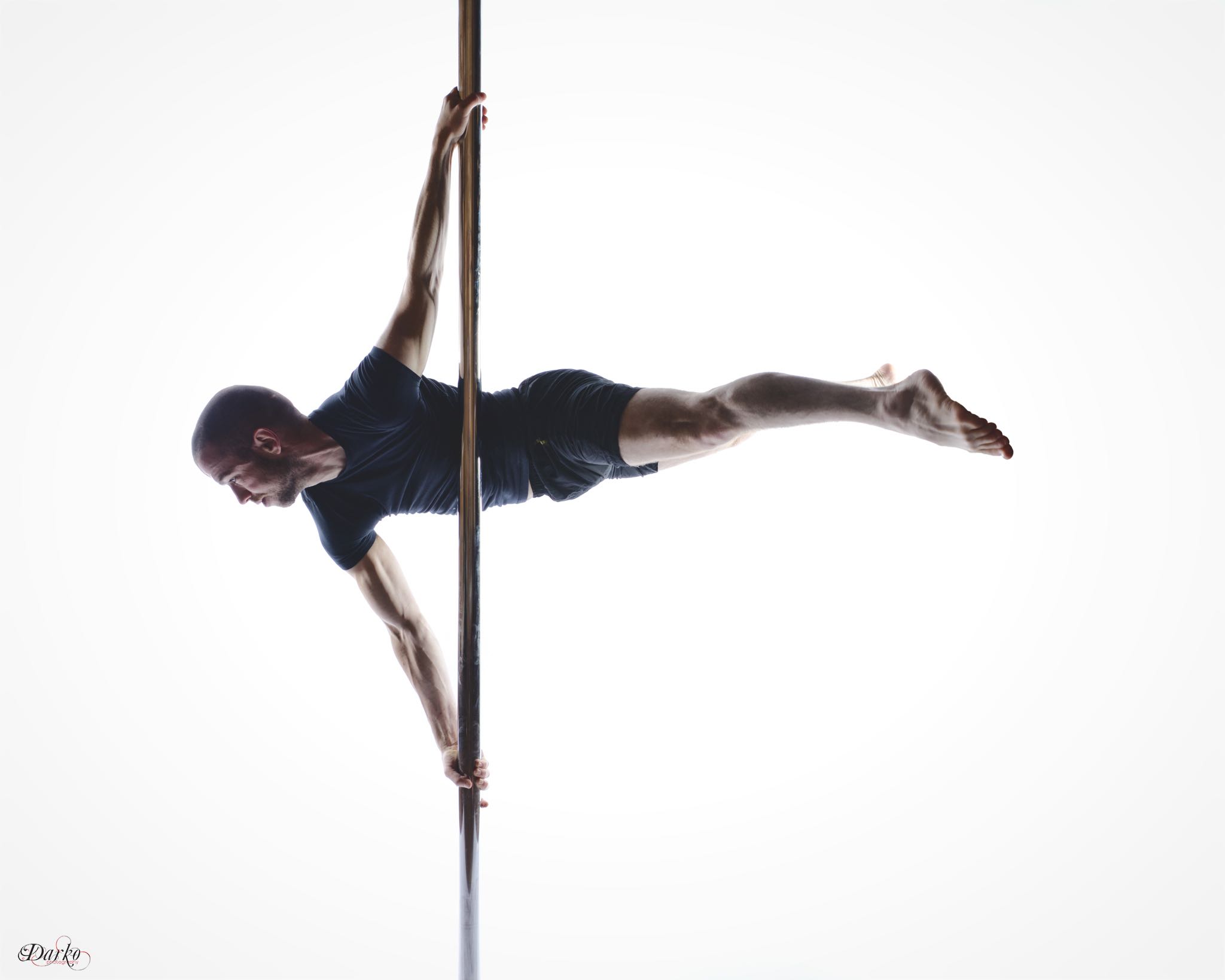
Terri: Yes, we’ve been so happy to represent Pole as a sport in different Competitions. I won the World Pole Championships twice with my Doubles partner Lisette, and won 1st Place at the All Ireland Pole Championships twice as a Solo artist.
Michael: I’m delighted to hold 1st Place at The Irish Pole & Fitness Championships 2013, All Ireland Pole Championships 2013 & 2014 and Pole Theatre Ireland Overall 2014. We are both in training for the World Pole Sport & Fitness Championships in Beijing in 2015.
(4) You must need incredible strength to perform the moves and you do all this on a vegetarian diet?
We do indeed! Pole Sport is a total body workout using every single muscle group and requires lots of strength and endurance. Contrary to common belief, we obtain all the protein, carbohydrates, vitamins and minerals we need from our vegetarian diet. We eat a lot of fresh vegetables, pulses, legumes, nuts and seeds.
(5) How long have you been vegetarian? Were you vegetarian when you started pole dancing?
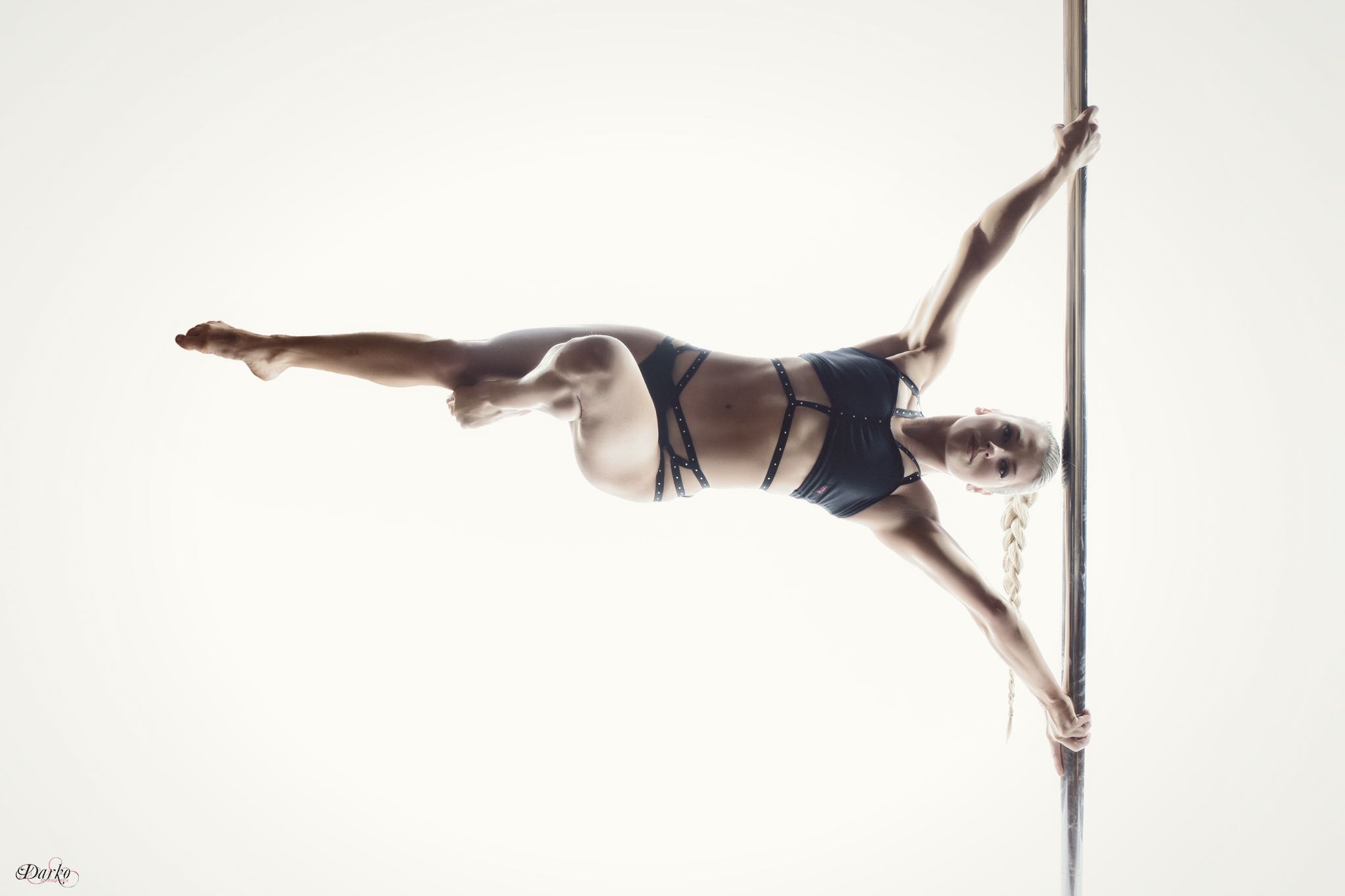
Terri: I have been vegetarian since I was 12 – It has always been a lifestyle for me and the only reason I wasn’t vegetarian earlier is because my parents had that ‘eat your steak!’ mentality! Haha 🙂
Michael: I have been a vegetarian for over a year now. With both my parents being vegetarian I have always eaten a lot of what they would have cooked at home. Then when I met Terri and we moved in together I decided a full vegetarian diet was the way forward! She opened my mind a lot to experimenting with a larger variety of foods.
(6) What do you include in your diet, how would a typical day’s menu look?
We made the decision to become Vegan this year, so for the last week we have been adjusting to that new diet! Otherwise, we eat everything! For breakfast we start with a wheatgrass and spirulina drink and then we might have muesli or porridge with almond milk. If we have time, we’ll cook a ‘fry’ with potato waffles, beans, rocket and spinach salad with olive oil, vegan bread toast with cubes of Violife vegan cheese and some tea with almond milk.
Lunch would be a giant quinoa salad with Linda McCartney sausages, sliced avocado or maybe vegetable soup and a banana if we are between training sessions.
Dinner is our favourite! We love Govindas or The Happy Pear if we can go out for dinner but if we are cooking ourselves, we might make bolognese or chilli (using Vegemince) with rice or pasta, or a giant stirfy! We always have spinach and rocket salad on the side too.
(7) Do you have a favourite vegetarian chef or cookbook?
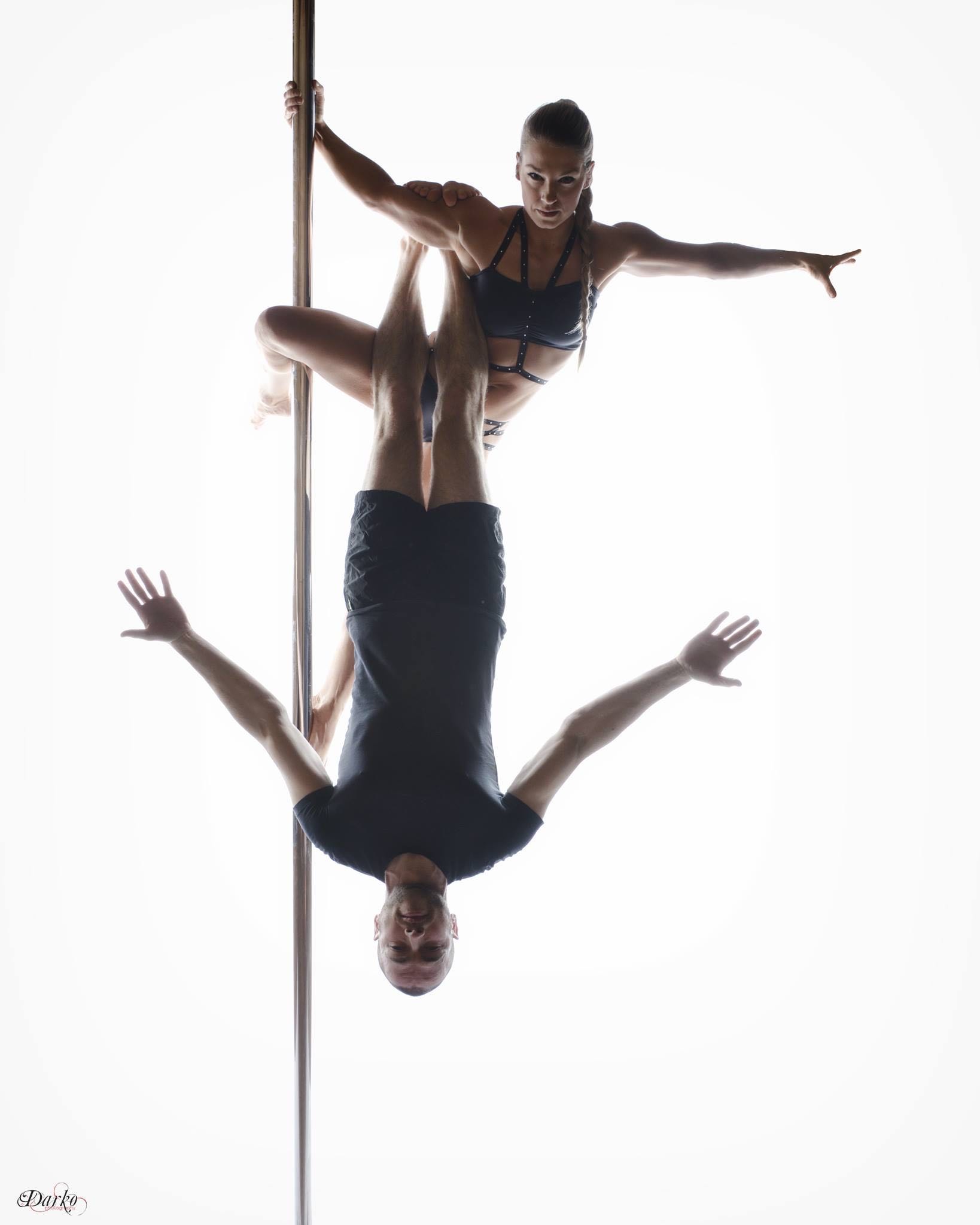
We are dying to try out some recipes from The Happy Pear Cookbook! We just bought it. Their food is amazing so hopefully we can replicate some recipes!
(8) What’s your favourite dish?
We both love Govindas meals, especially the lentil moussaka and tofu in tomato and basil sauce. Delicious!
(9) Do you tend to eat differently if you are approaching a period of intensive training?
Terri: Before we were Vegan, we would cut out chocolate and lots of cheese from our diets. Michael’s Achilles heel was chocolate and mine was cheese! So while intensively training now, we will continue to eat really well, stocking up on power foods for energy! We up our morning wheatgrass/spirulina dose too!
(10) Have you come across many other vegetarians in your field, professionally or in your classes?
In the field of Callisthenics, we are big fans of Frank Medrano. He is vegan and an inspiration – so strong!
In the Pole industry we know a few other Vegans and Vegetarians, and a few in our classes too. Some of our students, when we tell them that we are vegan, wonder what on earth we eat?! We are always happy to provide info to anyone who is curious about our diet! 🙂
(11) Do you have any advice for anyone interested in taking up pole dancing or advice for other athletes considering a vegetarian diet?
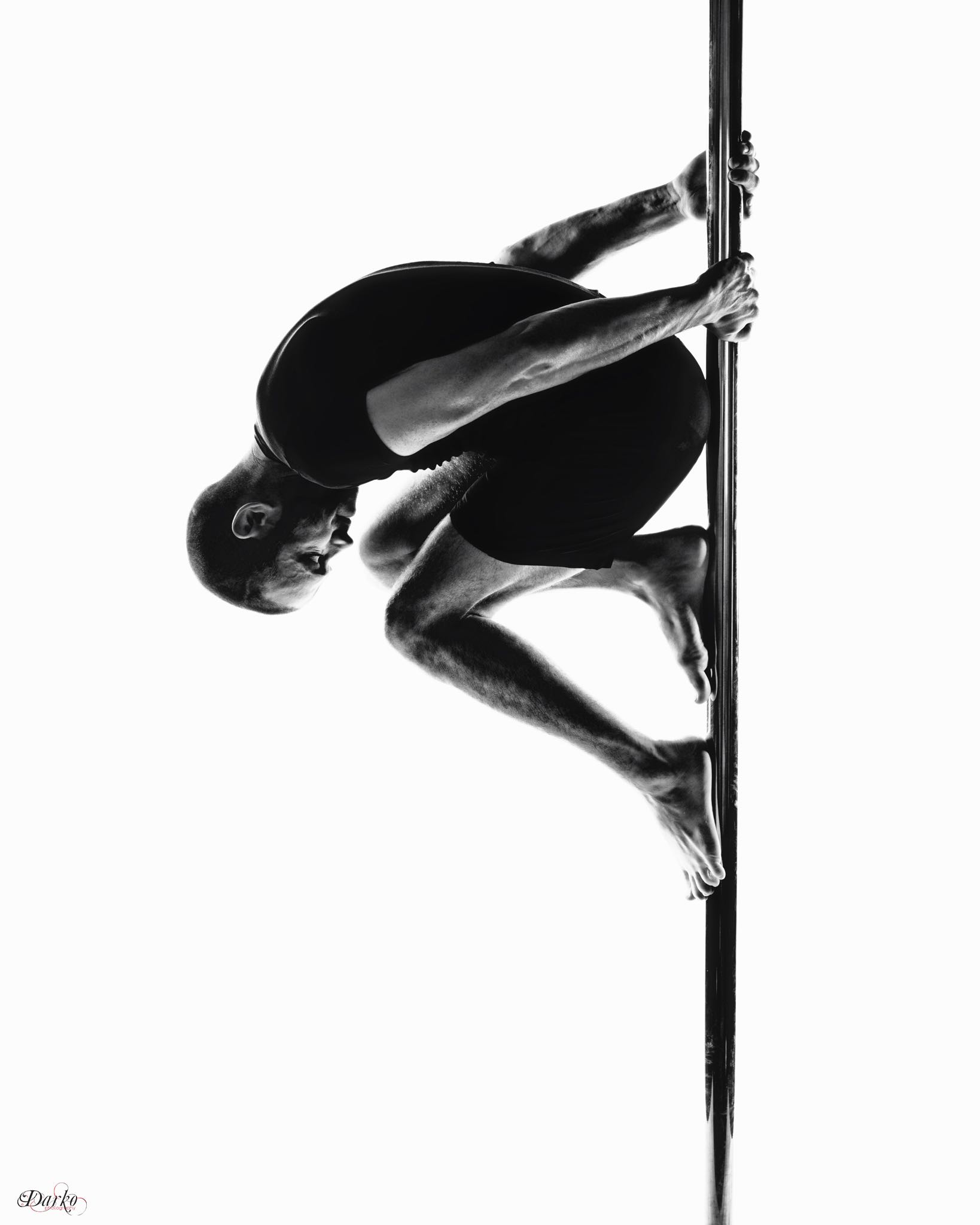
Terri: My advice is if you want to try Pole – DO IT! My classes are a mix of Pole Dance, Pole Fitness and Pole Acrobatics – It’s a beautiful art for people of all ages and fitness levels. We have a lot of fun in class and I have made so many friends in my career.
Michael: If you an athlete considering a vegetarian diet, do your research to make sure you intake enough nutrients and vitamins along with all the great protein sources available in a veggie diet. I have worked in the fitness and nutrition industry for 8 years and a lot of my reading and research indicates that far better health and well-being can be achieved on a vegetarian/vegan diet!
(12) What are your goals for 2015?
Terri: I’d love to do well again at the World Pole Championships this year. I’m opening my third studio too, in Portlaoise – Such an exciting new venture! Also, I want to keep training hard and pushing myself to achieve new goals in my sport.
Michael: I want to experiment more with food and become a more efficient vegan cook! My main focus is training hard for The World Pole Championships too, and I hope to do a great routine for that.
(13) Did you guys meet through Pole?
Terri: We met while performing in a music video. I was doing Pole and Michael was Fire Breathing, and we decided to begin training together. The rest is history! 🙂
INFORMATION ON CLASSES:
Facebook:
Fierce Fitness Dance Studio
Instagram:
Terri_Fierce
michaelpoleacrobat
Maynooth:
K6 Maynooth Business Campus, Straffan Roundabout
Tel: 0877912199
Email: fiercefitness@live.com
Dublin:
22 Greenmount Industrial Estate, Harold’s Cross
Tel: 085 7593736
Email: fiercedub@gmail.com
Video:
https://www.youtube.com/watch?v=fWe_BWYs_Zc&feature=youtu.be












